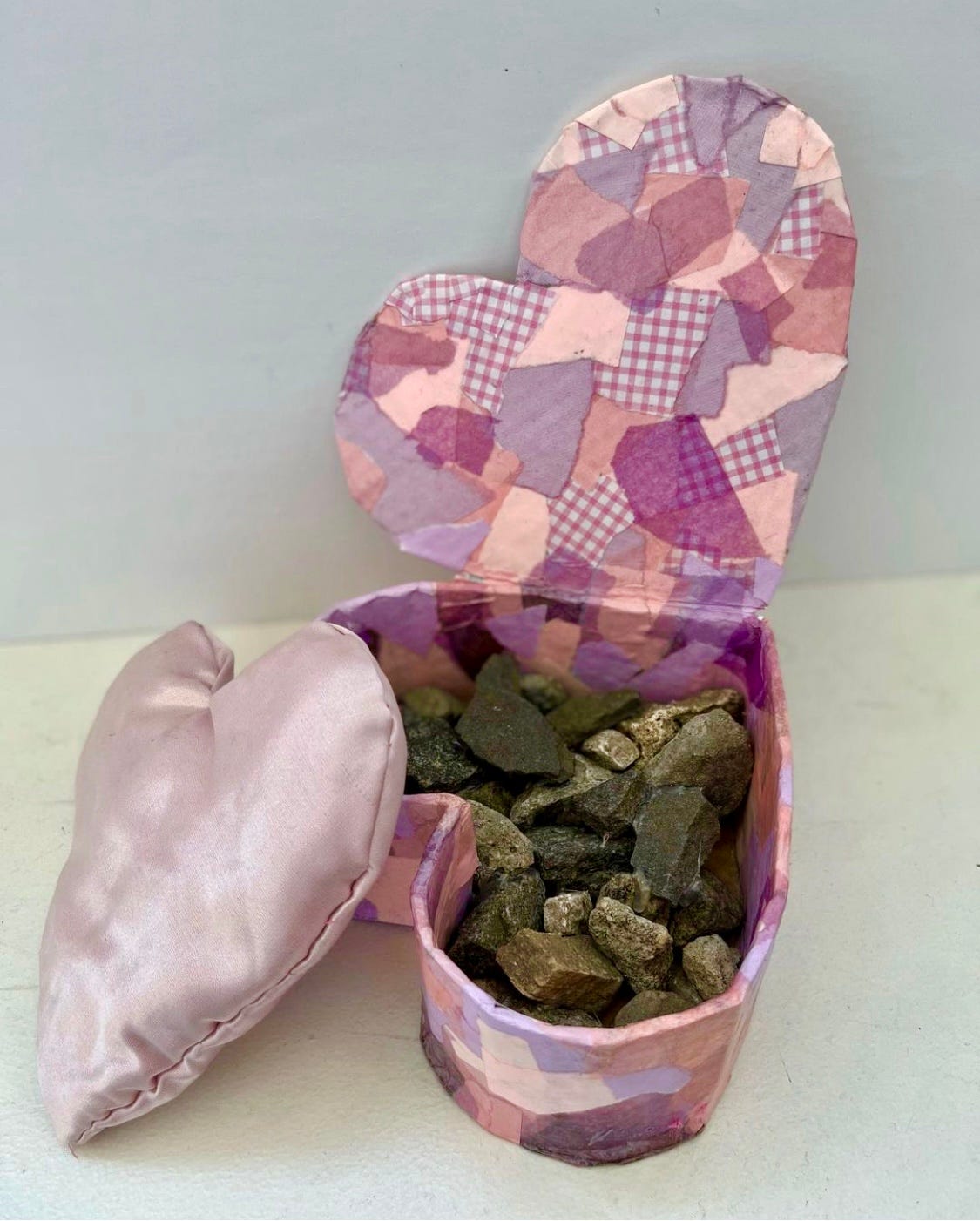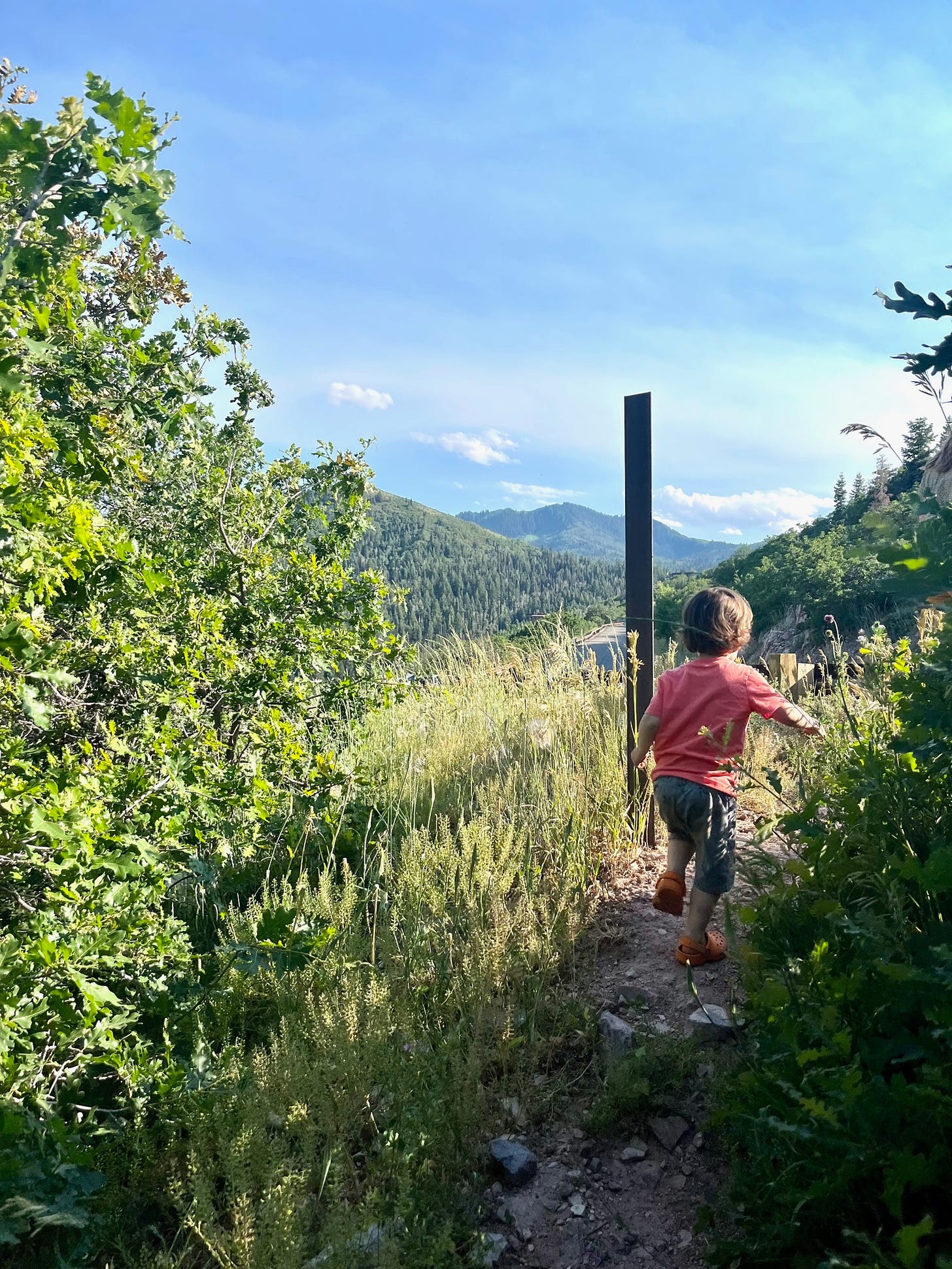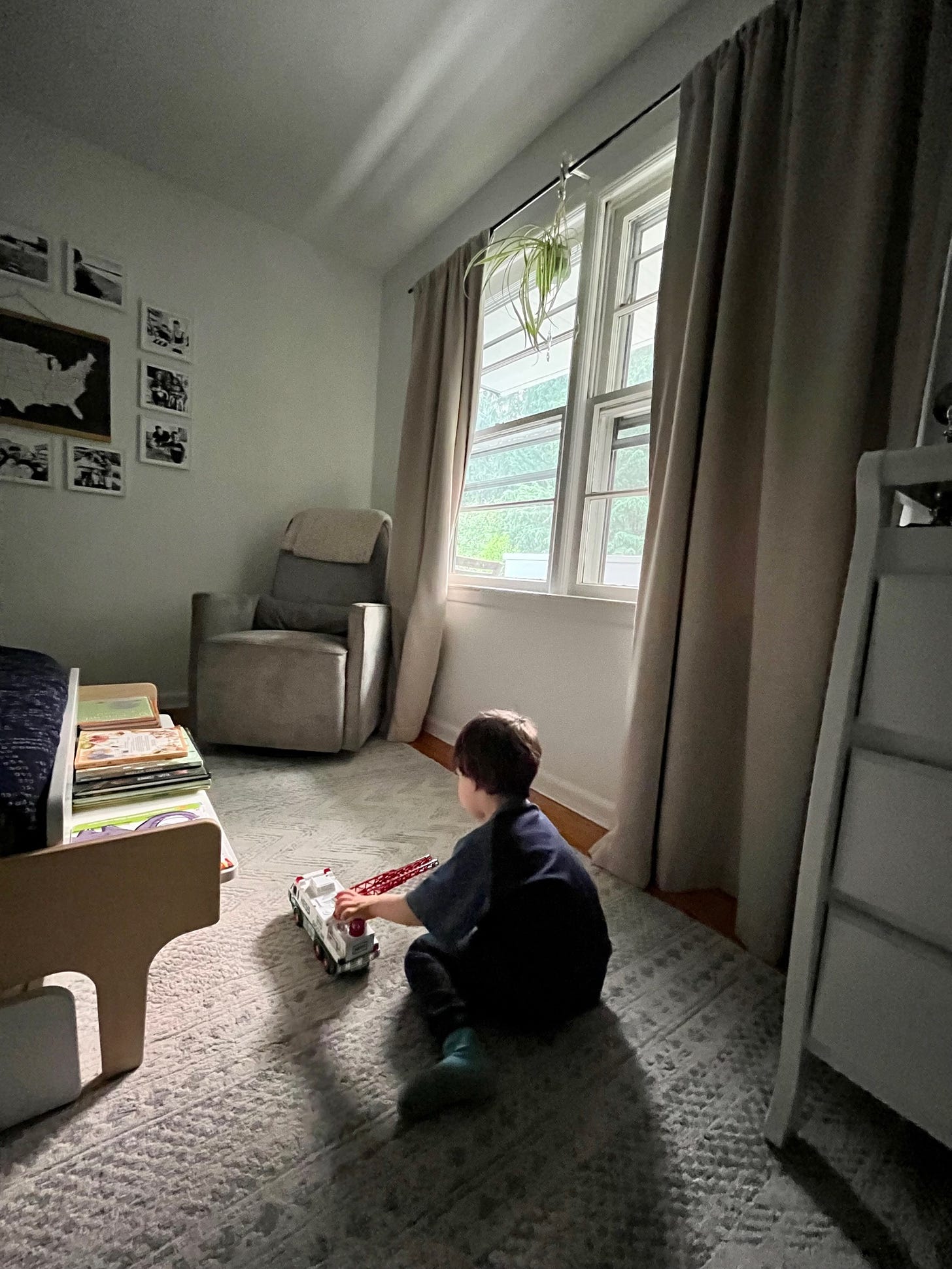Further Reading: Parenting on Hard Mode
On grief, forest fires, ER visits -- and our own complicated parents.

I love experimenting, whether it’s trying out a new kind of sunflower seed in my greenhouse, or playing with a new post format that might open up new avenues for us to connect with each other, in authentic ways. I’ve been trying both this season, trying out everything from Q&As with smart people to anonymous polls that can help us all feel a bit more seen.
At the same time, I’m finding that I tend, without intending, to go deep on a particular topic, whether it’s about learning how to heal from trees, or about the symbolic power of starting a garden, for weeks at a time. It’s just how I process and compost the things life brings. When I look back, the linkages between the posts always seem so natural, but at the time, I just feel like I’m channeling the energy of the season from week to week.
I’ve always found it very poetic that in Eastern medicine, the primary emotion associated with spring is anger. Not destructive anger, but constructive, propulsive energy turned outward — the kind that a spiky tulip or daffodil needs to say sayonara to its safe existence inside an underground bulb or tightly closed bud, and to push up and out through snow in order to find its fullest, sassiest spring expression.
What if we considered the combustive energy of the spring-summer shoulder season as natural and productive in people as we do in daffodils? What would that open up for us?
In any case, below are the posts that helped me and this community to find our fullest expressions of anger and love this season. I’d love to hear your feedback on how it felt for you to receive as a reader, below, if you’d be so kind!
POST ROUNDUP:
Exit Interviews: Ashley Locke (NPR/WBUR) on her initiations as a mother
For my first Q&A, I called up my friend Ashley at WBUR/NPR to talk to me about the art of interviewing, and about her own initiations as a mother. Our insightful conversation touched on the importance of chosen family, and also became a meta-reflection on the point at which an interview becomes less like “traditional” journalism and more collaborative memoir-making, where we get the shape and heft and wisdom of a story that’s been processed into medicine for a lucky few — not just a sound bite or a story offered up as “trauma porn” for the masses. I think Ashley’s reflections on these things as a reporter are essential reading for us all.
The First Rule of the Complicated Mother’s Day Club Is… (We Absolutely Have to Talk About This Club.)
There are so many of us on Mother’s Day who suffer in silence because our experiences with our own mothers, or in becoming mothers, or in trying and struggling to become mothers, make us feel like we don’t fit into the normative narrative. Like there is no Hallmark card or etiquette guide for us on this day.
This notion came up in Ashley’s interview, and when I shared it across my networks, it sparked a response that I felt I needed to fan into a cozier campfire of a post for those of us in the Complicated Mother’s Day Club (CMDC) to gather ‘round.
So, I took a break from my typical essay-writing to interview the many people who commented on Ashley’s story, from kindergarten teachers to hospital chaplains. I used their insights to bang out this old-fashioned service journalism piece, featuring explicit guidance on how to start caring conversations with our friends about things like their miscarriages, absent or ill mothers, and other dashed dreams of motherhood, that we know can hurt worse on this day.
The results were powerful, angry, loving — and, I hope, empowering for those of us who want to say something, but we also want to get it “right.” As Ashley said in the interview that ignited this conversation — the best way to get it “wrong” is to do nothing at all.
What do you long for this summer?
Sure, we all have dreams summer, but we also have unspoken longings for ourselves, longings that might even run counter to our stated goals. We want to have a baby, but we’d also prefer to camp our way across the country, like my fellow writer
, or even cruise the open road atop a motorcycle, like , than stick around town for fertility treatments. We want to log quality time with our living children, but we also want to curl up in a corner and make our art or simply enjoy a moment of spaciousness. The invitation in this post was to witness and be witnessed in the push-pull and the both/and of it all, anonymously. To vote on which one of these options called to you:Spaciousness: travel, time, rest.
Rooting: home, partner, kids.
Growing: creativity in some form.
Both/and! Feeling the push-pull
Other (ooh, please tell us what!)
If you’re curious to see the results, click here to see the original post!
Finding a safe place for the mind’s loose change
When our own Complicated Mother's Day ended in the ER, a rediscovered treasure from my grandmother offered surprising solace — and an opportunity to honor the woman who raised me, alongside my own mother.
Wild Geese & Mustard Seeds
On the sacred permission offered by a Mary Oliver poem and a parable about bereaved motherhood — to return to the “family of things” after experiences of what Tara Brach calls severed belonging. (Like, you know, spending Mother’s Day in the E.R. instead of taking charming photos of my breakfast in bed for the ‘gram.)
Contemplating spaciousness, through smoke
In all transparency, this was a primal scream of a post, one penned during a week without childcare or safe access to the outdoors, as smoke filled our neighborhood north of NYC. This happened even before my child spiked a fever that stayed for days, thus cancelling our plans for childcare this week as well.
TLDR: Parents and parenting are complicated topics — whether we are contemplating parenthood from afar, right in the thick of it, or reflecting on the ways in which we ourselves have been parented, by family biological and chosen. If this the space you’re in — you’re especially welcome in this space.
I’ll be taking some mental health days this month after this, to re-invigorate my writing practice and get a bit of rest. I’m also preparing to be part of the much-anticipated #1000wordsofsummer challenge here on Substack, which starts on June 17 and is hosted by
. (If that sounds intriguing to you, you can find all the info for that here.)While I’m also flirting with the idea of doing some form of summer hours here (bi-weekly or otherwise more occasional posts until fall vs. weekly), I’ve had such great conversations with so many of you this month that I absolutely also want to keep the momentum going in some way. (There’s that push-pull of summer again!) To that end, a q for you:
Is there any post format or topic from the list above that you’d like to see more of in this space? Let me know below!
NOTES:
Many other writers are taking some time off this summer, and explaining how they do it.
ran a roundup post of strategies here. over at is taking a summer sabbatical this August-September. wrote about going full “camel mode” before a book launch, and how hard that is, and yet how important it can be. interviewed Rainsford Stauffer about her book about reframing the language of “ambition” in All The Gold Stars, which seems like a must if you are in your social circle (me). Another big book making the rounds in my social circle this summer is Fair Play: A Game-Changing Solution for When You Have Too Much To Do (And More Life To Live), by Eve Rodsky. Because most of us mothers truly want to chillax (shocking, I know!) but we also want to make sure our children don’t fall down the well while we’re doing it. (I am privileged to have a partner that is fully on board for this, for the record.)How to handle all of that spare time you’ve just created in your schedule? It’s not easy.
this week had some helpful reminders for how to move through summer with realistic expectations for everyone’s Covid-addled nervous systems (particularly those of our kids). There’s also Rodsky’s other book, Find Your Unicorn Space, which arrived just as the pandemic and its aftermath was squelching every last cubic inch of spaciousness out of mothers’ schedules—and remains relevant, as we try to reclaim that space.Important: there is one reason to “go to work” next Monday, June 19, as the Anti-Racism Educator puts it: Juneteenth. White folks in particular are encouraged to show up to the work of anti-racism on this day. Maybe this means you check out the ideas and read-alouds offered by @theantiracismeducator_ on Instagram here, and use their Venmo tip jar to compensate them for the labor. Maybe this means you subscribe to the work of
and her anti-racism newsletter, because she is fighting the good fight to ensure that those who are fleeing social media to come to Substack still have a civil place to share their work.If you have other ideas, feel free to put ‘em below, and I’ll share them in my Notes on that day!






Just found you through a comment on #1000wordsofsummer, and glad for the connection. Our writing topics have some overlap—grief, complicated mothering, writing, spirituality. Looking forward to more.
I’ve also been feeling the push-pull of a posting cadence. Weekly posting keeps me accountable to my own creativity and reduces my perfectionism. But also I want summer weekends for just basking on the beach and doing nothing. I’m currently thinking of bi-weekly posts for now, maintaining my writing schedule each week but allowing more time for revision and reflection.... and lazy days at the beach.